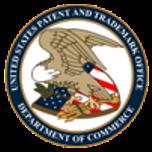Washington, DC
On January 18, 2013, the U.S. Patent and Trademark Office on issued final rules setting revised patent fees under Section 10 of the America Invents Act. (78 Fed. Reg. 4211). Section 10 of the AIA permits the USPTO to set or adjust by rule any fee under Title 35 or Title 15 for any services performed by or materials furnished by the Office. According to the statute, the fees may only recover the aggregate estimated  costs for patent and trademark processing, activities, services, and materials. In its final rule notice, the Office said the fee-setting authority would permit sustainable funding and reduce the patent application backlog. According to the Federal Register notice:
costs for patent and trademark processing, activities, services, and materials. In its final rule notice, the Office said the fee-setting authority would permit sustainable funding and reduce the patent application backlog. According to the Federal Register notice:
The fee schedule in this final rule will recover the aggregate estimated costs of the Office while achieving strategic and operational goals, such as implementing a sustainable funding model, reducing the current patent application backlog, decreasing patent application pendency, improving patent quality, and upgrading the patent IT business capability and infrastructure.
For the most part, the fees in the final rules are the same as those in the proposal published last September (77 Fed. Reg. 55028, 9/6/2012). Many of the new front-end fees are reduced, such as the basic filing fee for an original patent application (reduced from $380 to $280), and the new fees include the 50% discount for small entities and 75% discount for micro entities. Among the differences between the proposed and final fees, the following are examples for non-small entity applicants:
• Correction of inventorship after first Office action (§1.17(d))
Proposed: $1,000; Final: $600
• Issue fee paid before January 1, 2014 (§1.18(a)(2))
Proposed: $960; Final: $1,780
• Ex parte reexamination fee (§1.20(c)(1)):
Proposed: $15,000; Final: $12,000
• Ex parte reexamination fee after supplemental examination (§1.20(k)(2))
Proposed: $13,600; Final: $12,000
• Notice of appeal to PTAB (§41.20(b)(1))
Proposed: $1,000; Final: $800
The Patent Public Advisory Council reviewed the September 2012 proposed rules and noted the many of the fees were tied to reducing pendency, using a goal of 10 months to the first Office action by 2015, and a goal of 20 months total pendency by 2016. Under the final rules, achievement of those two goals is pushed back to 2016 and 2017 respectively. In addition, the Office anticipates a reduced backlog and inventory of approximately 335,000 patent applications by 2016. For most of the fees, the effective date is March 19. 2013.





